Sophia Grancharova / Stanka Tsonkova - Usha / Vladimir Ivanov
11 February 2022 – 12 March 2022
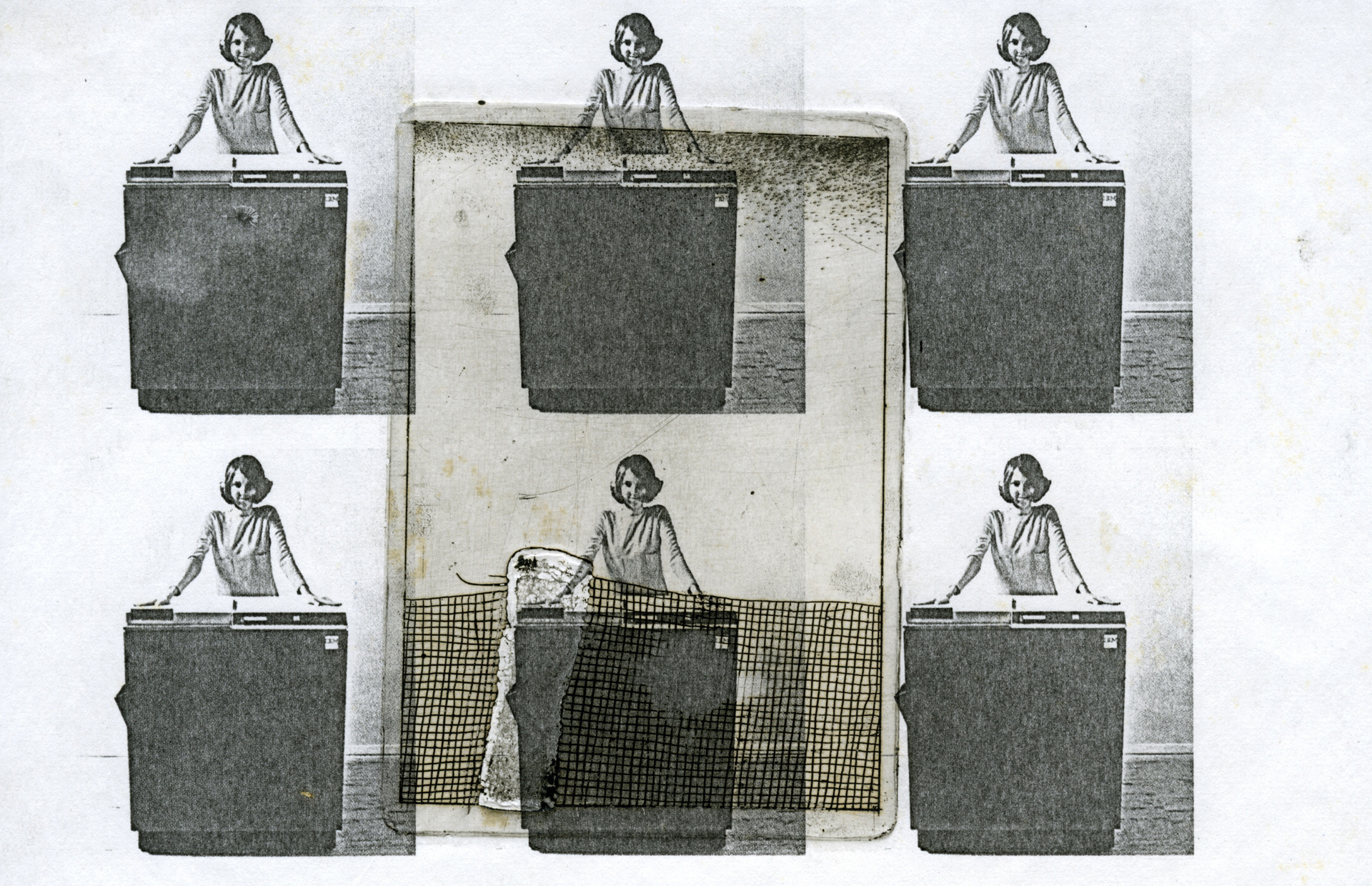
Sophia Grancharova / Stanka Tsonkova - Usha / Vladimir Ivanov
11 February 2022 – 12 March 2022
You’ve expected it for many years.
But the miracle is here every hour.
See the mover passing by your house
with a heavy mirror!
As he walks, the streets, the houses
and the fences zoom,
people come up from the shining bottom,
cars fly out in rage like birds from a cage.
Town squares start to sway,
and trees,
roofs and balconies fall down,
blue skies flash.
You don’t have to wonder why the mover
stoops and makes so slowly every step.
He is holding in his human hands
a whole new and amazing world.
A Mirror (1937),
Atanas Dalchev
In audio signal processing and acoustics, an echo is a reflection of sound that arrives at the listener with a delay after the direct sound. When sound, or the echo itself, is reflected multiple times from multiple surfaces, the echo is characterized as a reverberation. (Wikipedia)
The exhibition ECHO rediscovers the early artistic practices from the 1970s and 1980s of authors Vladimir Ivanov and Stanka Tsonkova – USHA by extracting from the archives their hitherto unknown works from this period. These works are set in a gallery environment organized by the exhibition curator Vesselina Sarieva in cooperation with the young author Sophia Grancharova who takes part in the show with her own works.
Vladimir Ivanov (born 1946, Varna) graduated from the National Academy of Arts as a graphic artist. He later worked in the field of conceptual art and was an actively working contemporary of the artistic processes during the 1970s and early 1980s. He made use of various media – from drawing, through prints and installations, to interventions in urban and natural environments. The exhibition ECHO shows his earliest works made in his student years and later on during the communist regime. During this period, he remained a kind of an outsider and was not accepted into the Union of Bulgarian Artists up until the Changes of 1989. His works display bits and pieces from the socialist way of life, quotes from Western newspapers and magazines, photocopier ads etc., manipulated and reconfigured into a new visual system. The images are over-drawn, re-copied, printed, collaged, introduced into new geometric perspectives, whereby they become de-objectivized, relieved from their initial mode of being and furnished to subsist in a new type of reality. The selection and presentation of the artworks in this exhibition provides the possibility to observe them not as separate entities, but as groups with their own relations and dynamics, i.e. as units of meaning. In such a way, graphic arts may interact with drawing, a printed copy or an object and vice versa. The exhibition ECHO seeks to illuminate the crucial meaning of Vladimir Ivanov’s work ethics where the overcoming of reality becomes possible by realistic means of expression, by bringing time to a standstill or by poetically transforming something into silence.
Stanka Tsonkova – USHA (born 1952, Sofia) describes her work process as experimentation that is namely the primary goal of creation, not a means for its realization. In her view, the work process consists in photography, not conducted through photography. In her works from the 1970s and 1980s, presented at the ECHO exhibition, the practice of combining images is the result of a profound necessity for personal experience. When observing them we have the feeling of observing performative actions where the close-up shots, abstractions and selections deliberately fragmentize and laconize the action that remains unknown to us. Most of these artworks were realized in the open or in a natural environment, some of them were presented at cultural forums like the Apolonia Festival of Arts winter event in Sozopol (1986-1987) or in Plovdiv during the Month of Photography Festival, within the same period of time. The photographic techniques the author uses are diverse, her works insist on being experimentally unique and implicating not a single negative, but a multitude of negatives. Her work features collaging and often includes the use of classic silver-gelatin process of mixing various negatives. In her own personal approach, USHA remains a romantic rebel and a punk whose refusal to portray, coupled with a desire to reject and re-collect, borders on the sexual desire for disintegration of the bodies, of reality itself, followed by their liberation in being reconfigured and merged into a new syncretized reality.
Sophia Grancharova (born 1994, Sofia) uses various techniques and artistic performances by remaining a mediator between the visual image itself and its variable functions. In her recent exhibitions and projects, she organizes spatial relations designed to involve the spectator. She transforms photographs, images or magazine clippings into material objects, allowing the viewer to move around and “tackle” them conceptually. A focal point in her work is the human figure and its components that organize its entirety. The human body and the body of the work merge into an integral domain that reconciles media image and existence, thus becoming a neutral, warm and breathing space. At the initiative of the curator, Sophia was counseled to reconfigure some of her previous works within the space of the ECHO exhibition and introduce a peculiar feeling of disorientation between the dimensions of up and down, close and distant, reflection and self-reflection, absorption and appropriation. Although working in close proximity along the works of Vladimir Ivanov and Stanka Tsonkova – USHA, Sophia was advised not to come into contact with them, thus keeping a safe distance and preserving the independence of her own work field.
The visitor of the exhibition ECHO is invited to migrate to a new reality, a non-linear temporal dimension, a communicative environment free of a fixed sign system. It shatters the horizontal axis and the flatness of everyday life, allowing for self-reflection, liberation and audacity. Viewing the exhibition demands movement and dynamics from the potential viewers, so as to enable them to utilize the performative aspect of their personal methods of seeing and reflecting.
Presenting pre-discovered archive artworks and re-worked recent ones, the exhibition ECHO poses questions about the artistic economy, as well as the recycling of art and image into a new system that presupposes and delivers creative and visual exuberance.
Press
ECHO exhibition at Sarieva gallery – BNT, Kultura.BG, 15.02.2022
Rediscovering artistic worlds – BNR, Artefir, 20.02.22
Exhibition called ECHO exhibits unseen works by three authors at different ages – BTA, 14.02.2022
Kaloyanov, Hristo. Memories from negatives. Kultura, 15.03.2022
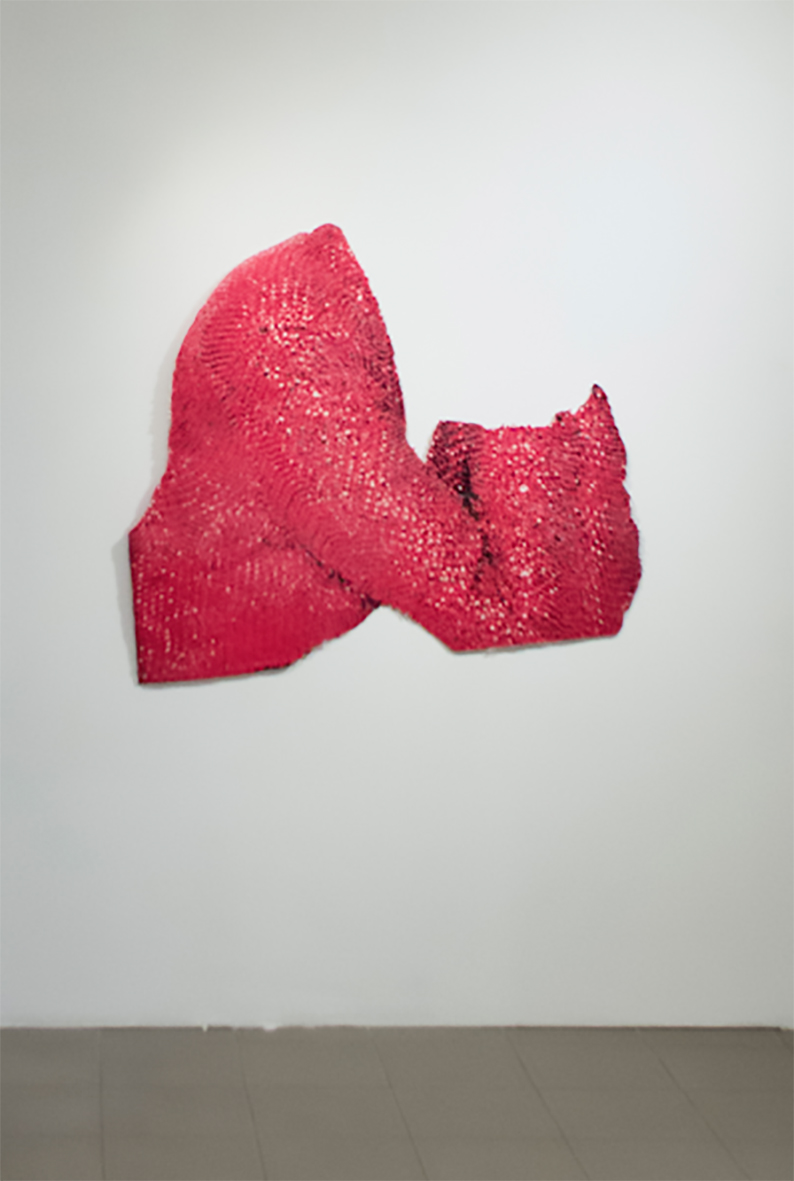 Sophia Grancharova
An Endless Cocktail, pt. 2, 2019
Silicone over digital print 100 x 90 cm Unique work
Sophia Grancharova
An Endless Cocktail, pt. 2, 2019
Silicone over digital print 100 x 90 cm Unique work
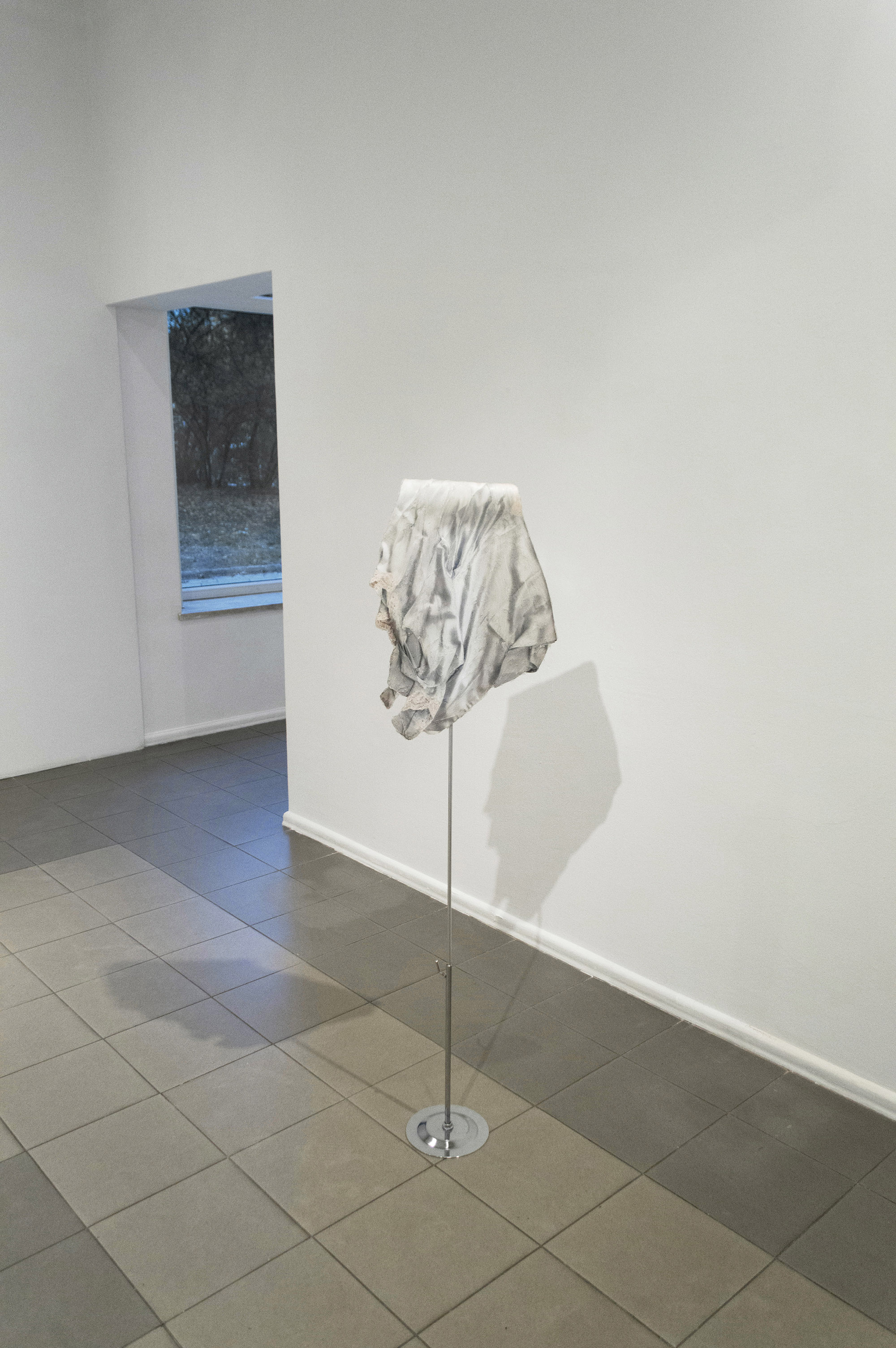 Sophia Grancharova
An Endless Cocktail, pt.3, 2019
digital print on paper, aluminum 130 х 40 cm
Sophia Grancharova
An Endless Cocktail, pt.3, 2019
digital print on paper, aluminum 130 х 40 cm
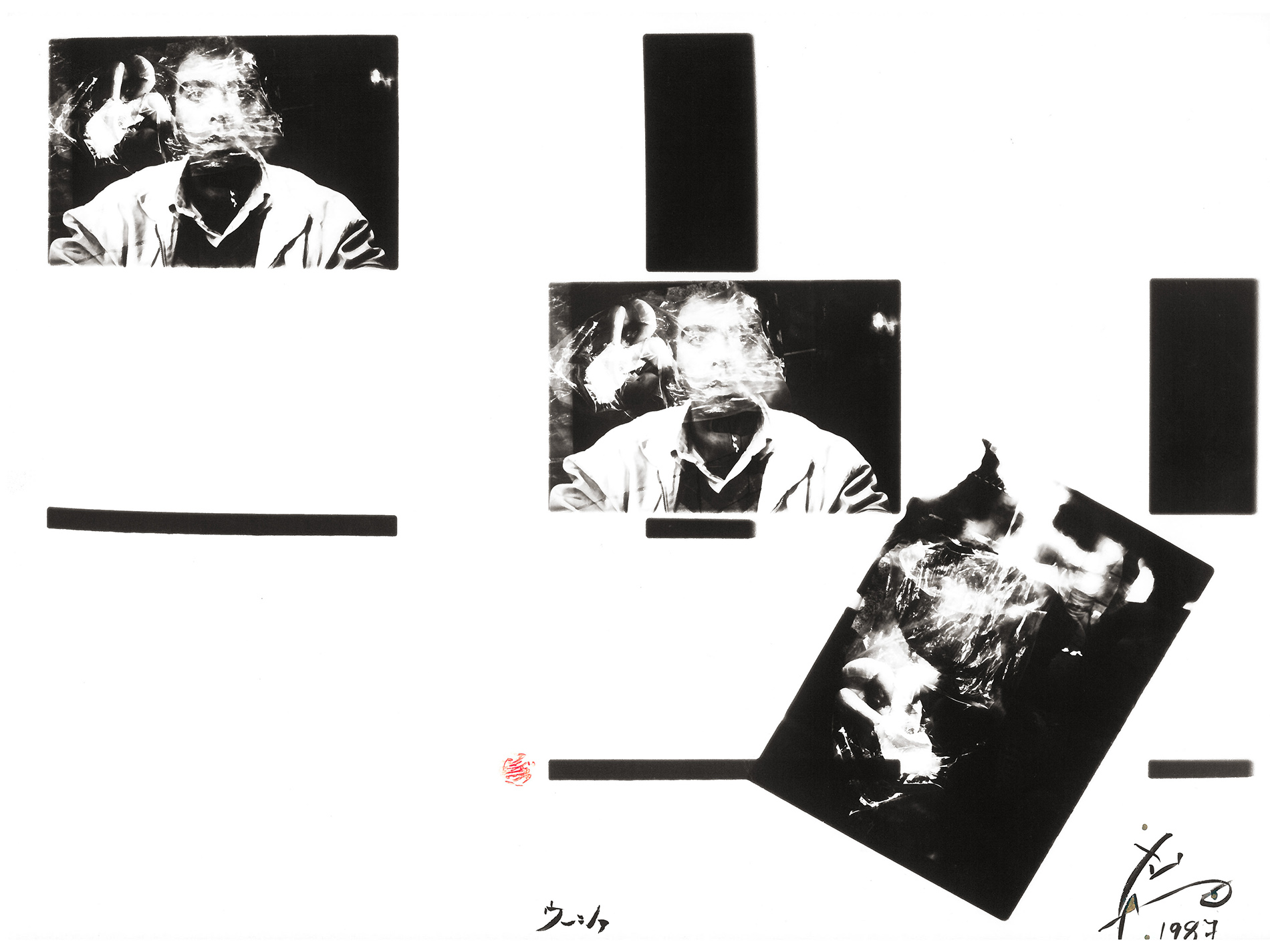 Stanka Tsonkova - Usha
Autumn in Plovdiv, 1987
Silver gelatin copies on a glossy Phohar photo paper 30 x 40 сm Unique work
Stanka Tsonkova - Usha
Autumn in Plovdiv, 1987
Silver gelatin copies on a glossy Phohar photo paper 30 x 40 сm Unique work
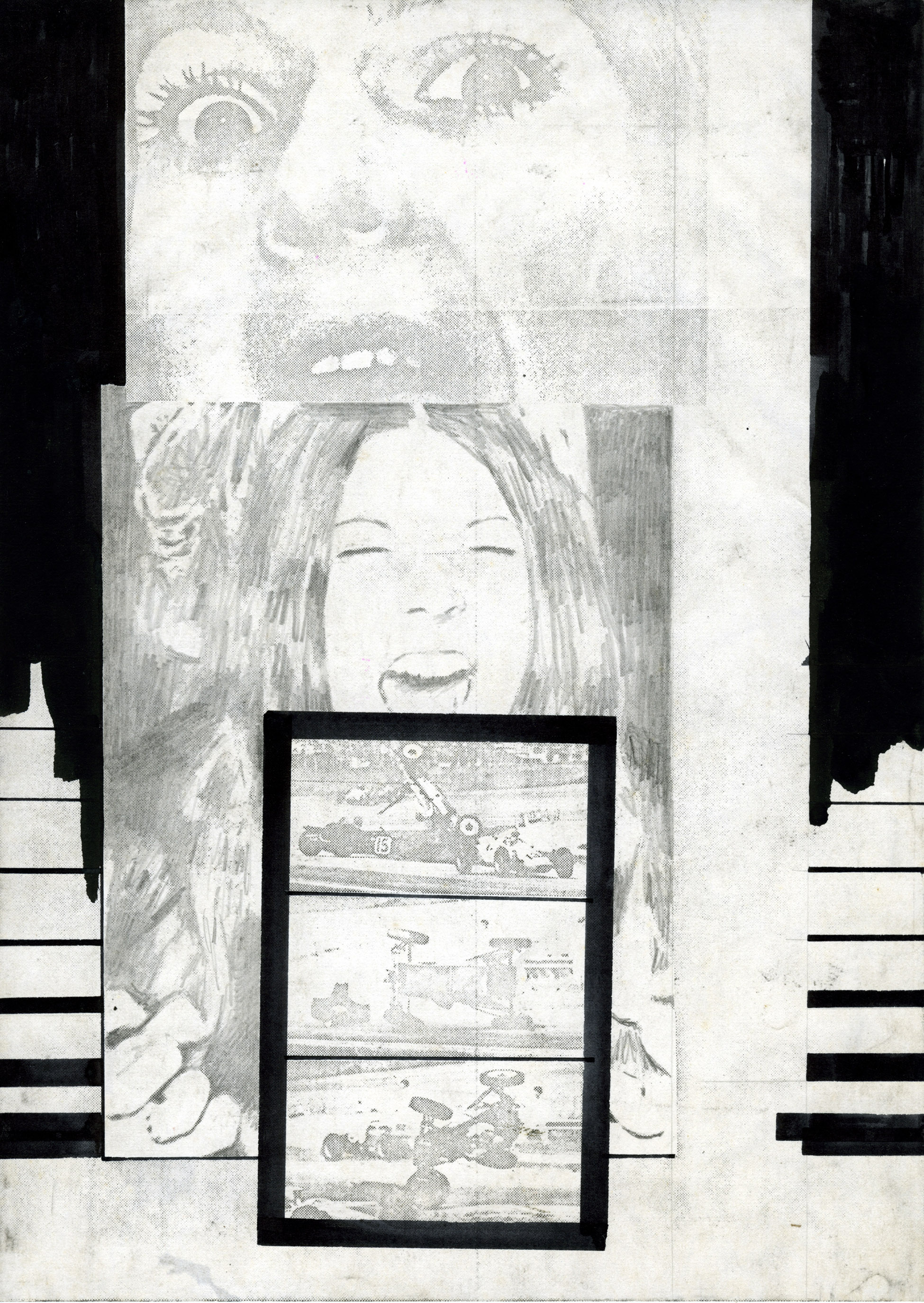 Vladimir Ivanov
Catastrophe, 1975
ink on photocopy
Vladimir Ivanov
Catastrophe, 1975
ink on photocopy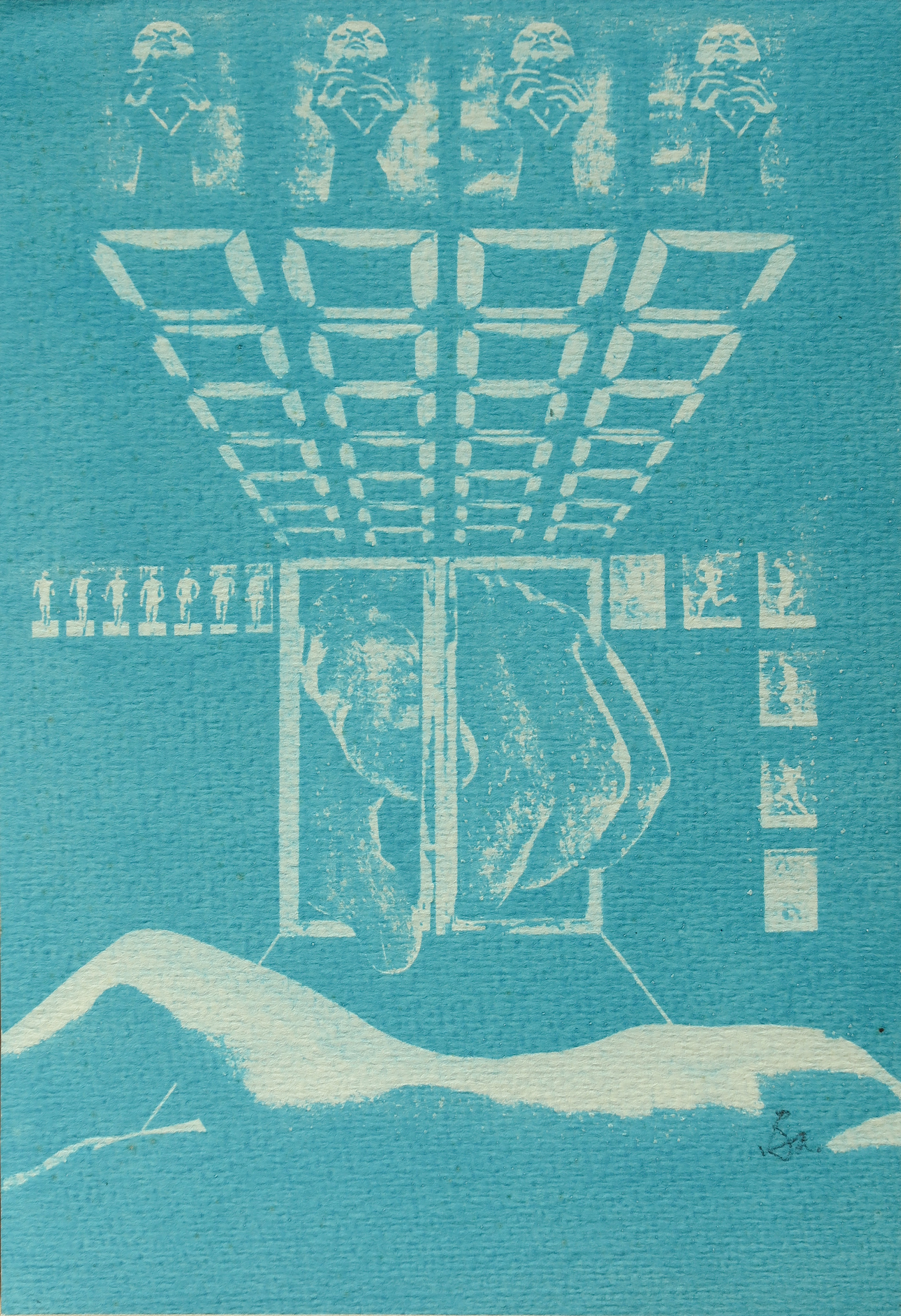 Vladimir Ivanov
Collage in blue, 1974
Gum bichromate
Vladimir Ivanov
Collage in blue, 1974
Gum bichromate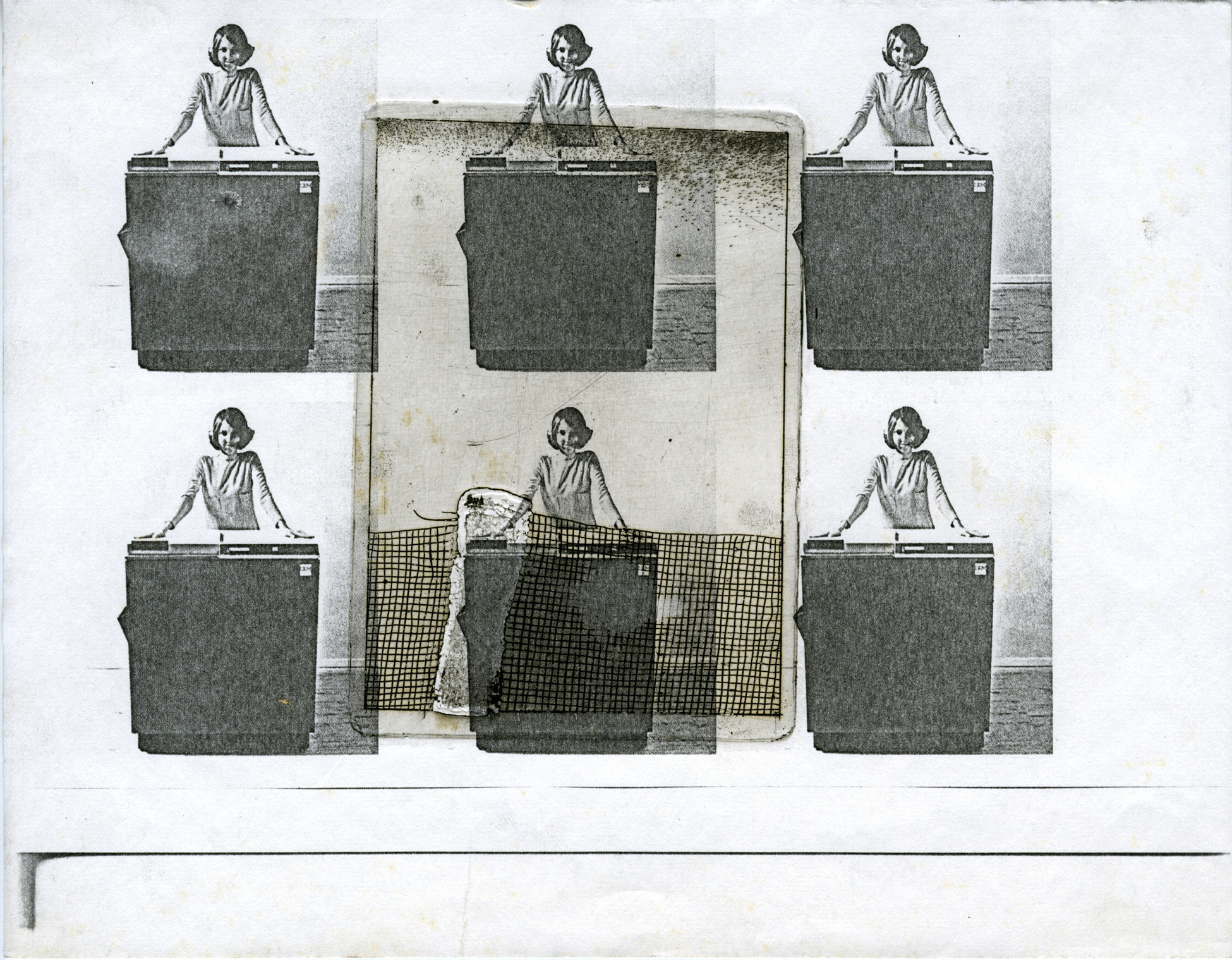 Vladimir Ivanov
Composition, 1975
Etching on photocopy
Vladimir Ivanov
Composition, 1975
Etching on photocopy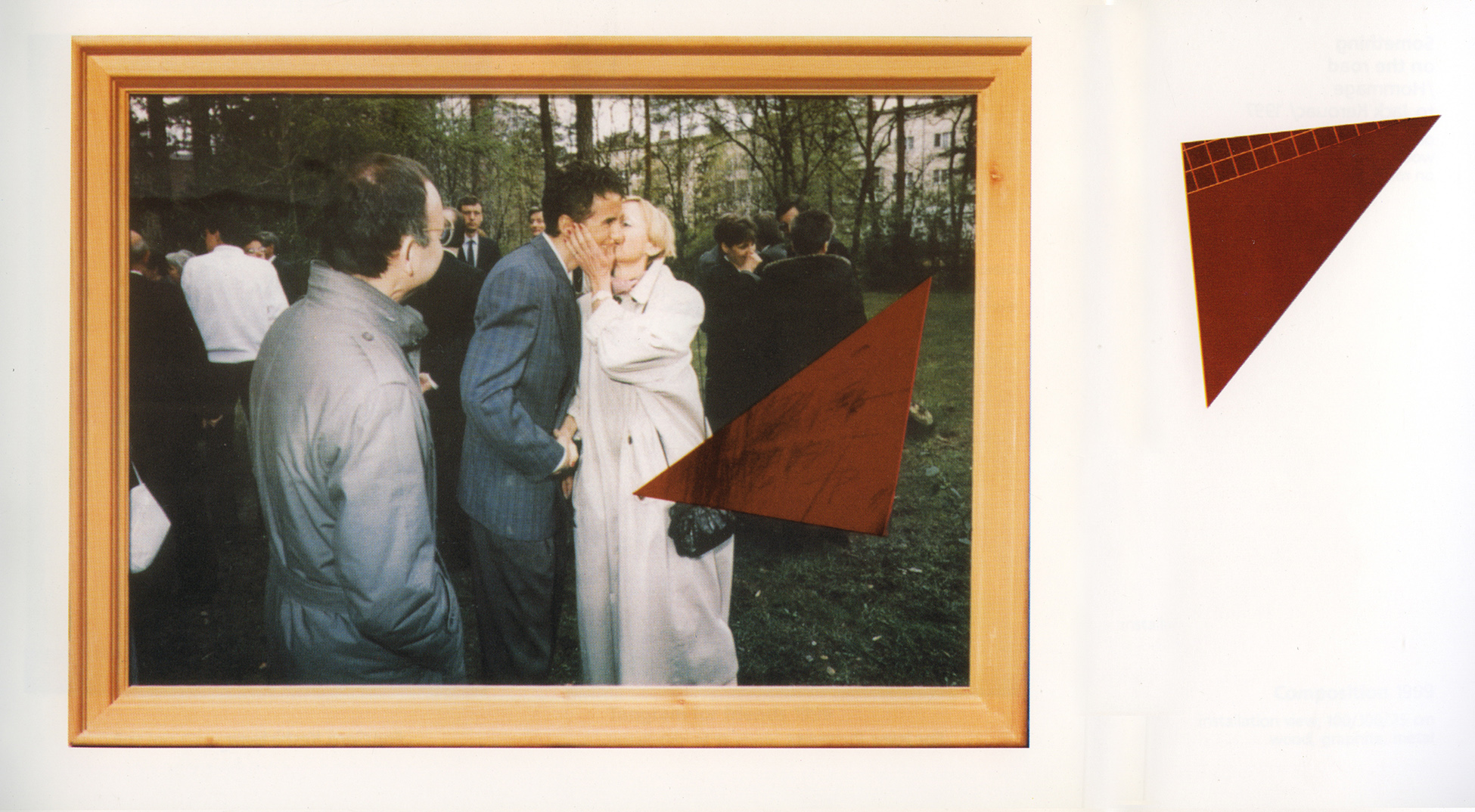 Vladimir Ivanov
Correspondences, 2000
Collage on poster, cardboard, Pencil
Vladimir Ivanov
Correspondences, 2000
Collage on poster, cardboard, Pencil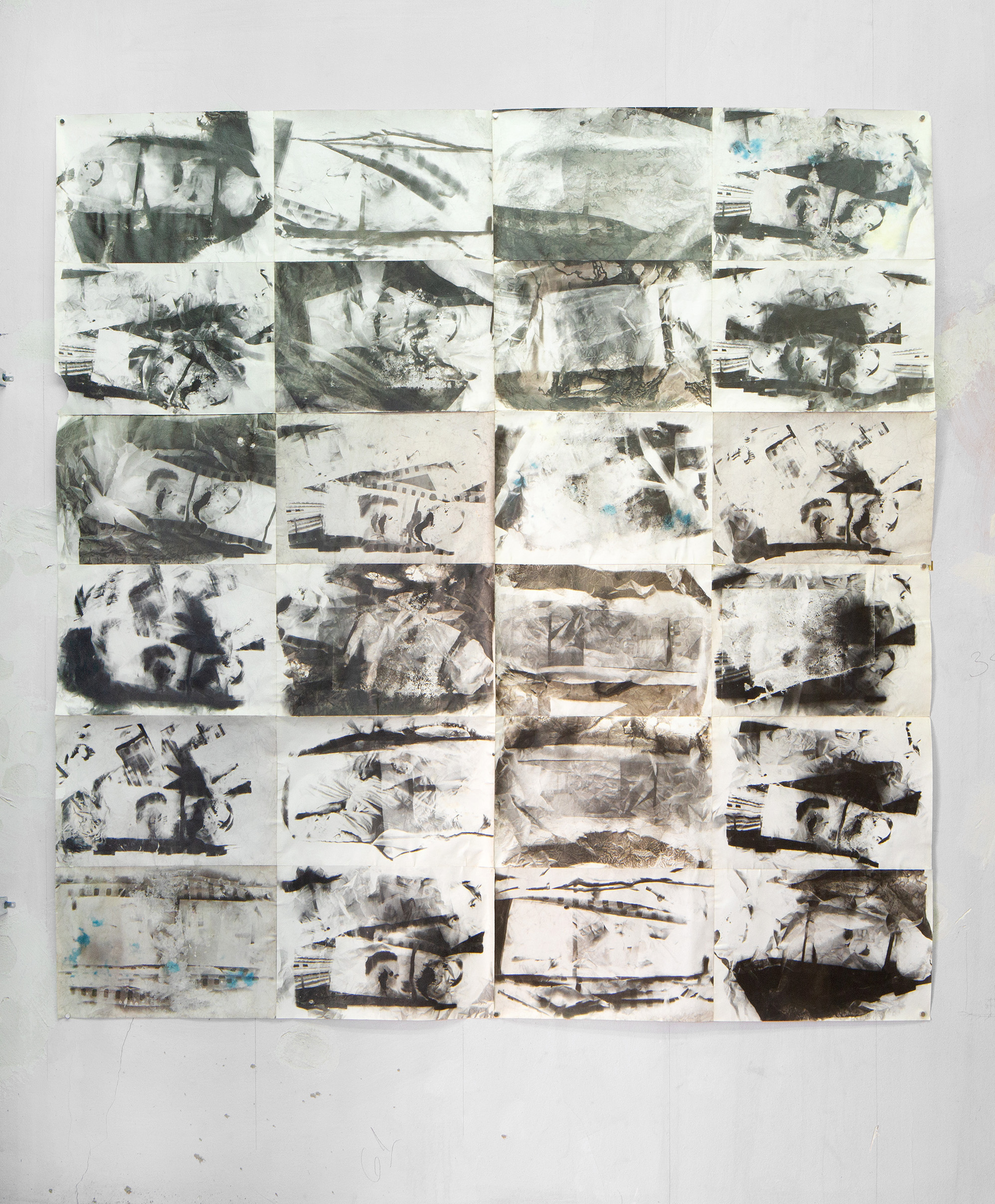 Stanka Tsonkova - Usha
Farewell to wind, 1987
Silver-gelatin process of mixing negatives on ORVO, FORTE paper 180 x 160 cm Unique work
Stanka Tsonkova - Usha
Farewell to wind, 1987
Silver-gelatin process of mixing negatives on ORVO, FORTE paper 180 x 160 cm Unique work
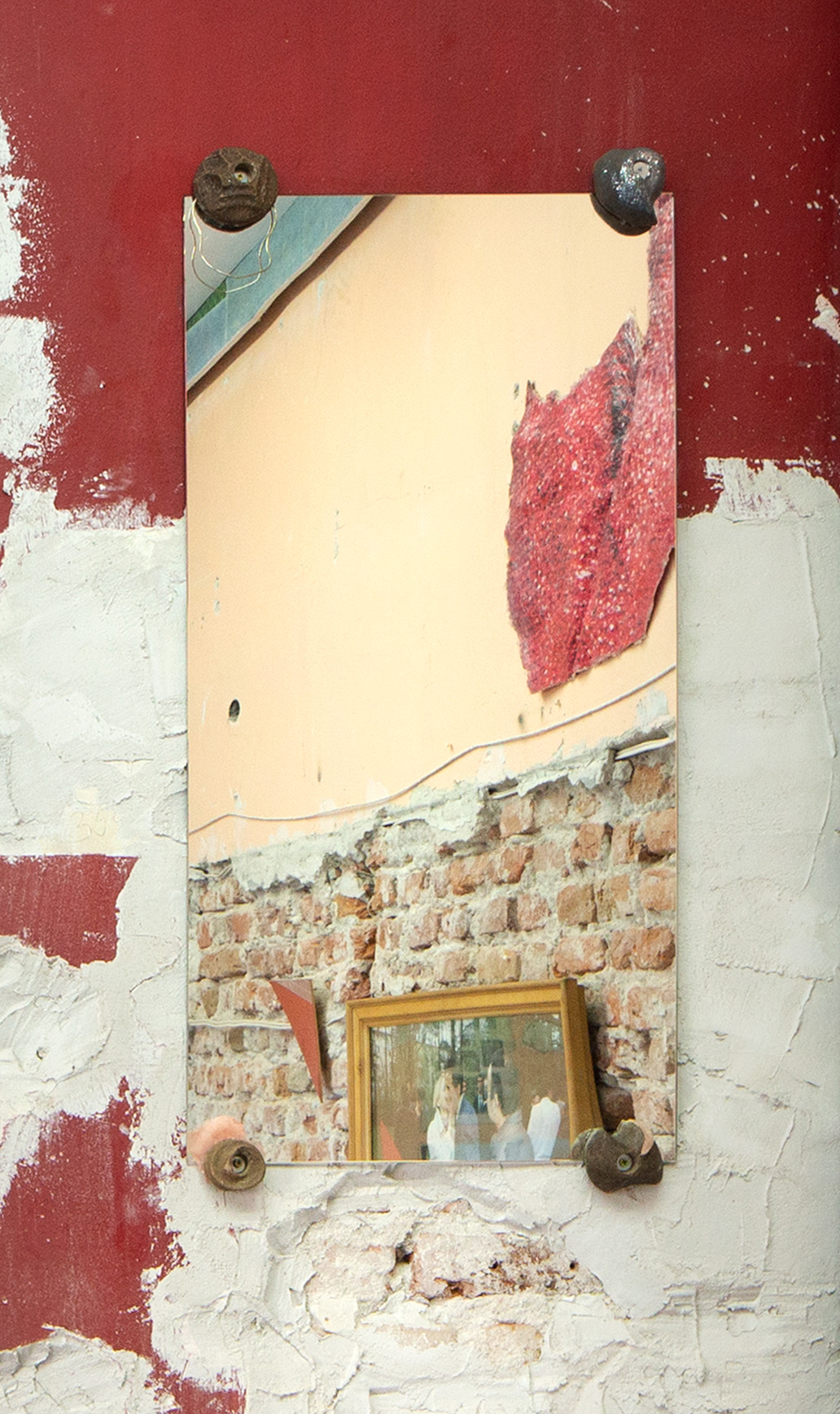 Sophia Grancharova
If You Look Closely, 2022
Epoxy resin, textile, silicone, glitter, steel, mirror 110 х 50 cm Unique work
Sophia Grancharova
If You Look Closely, 2022
Epoxy resin, textile, silicone, glitter, steel, mirror 110 х 50 cm Unique work
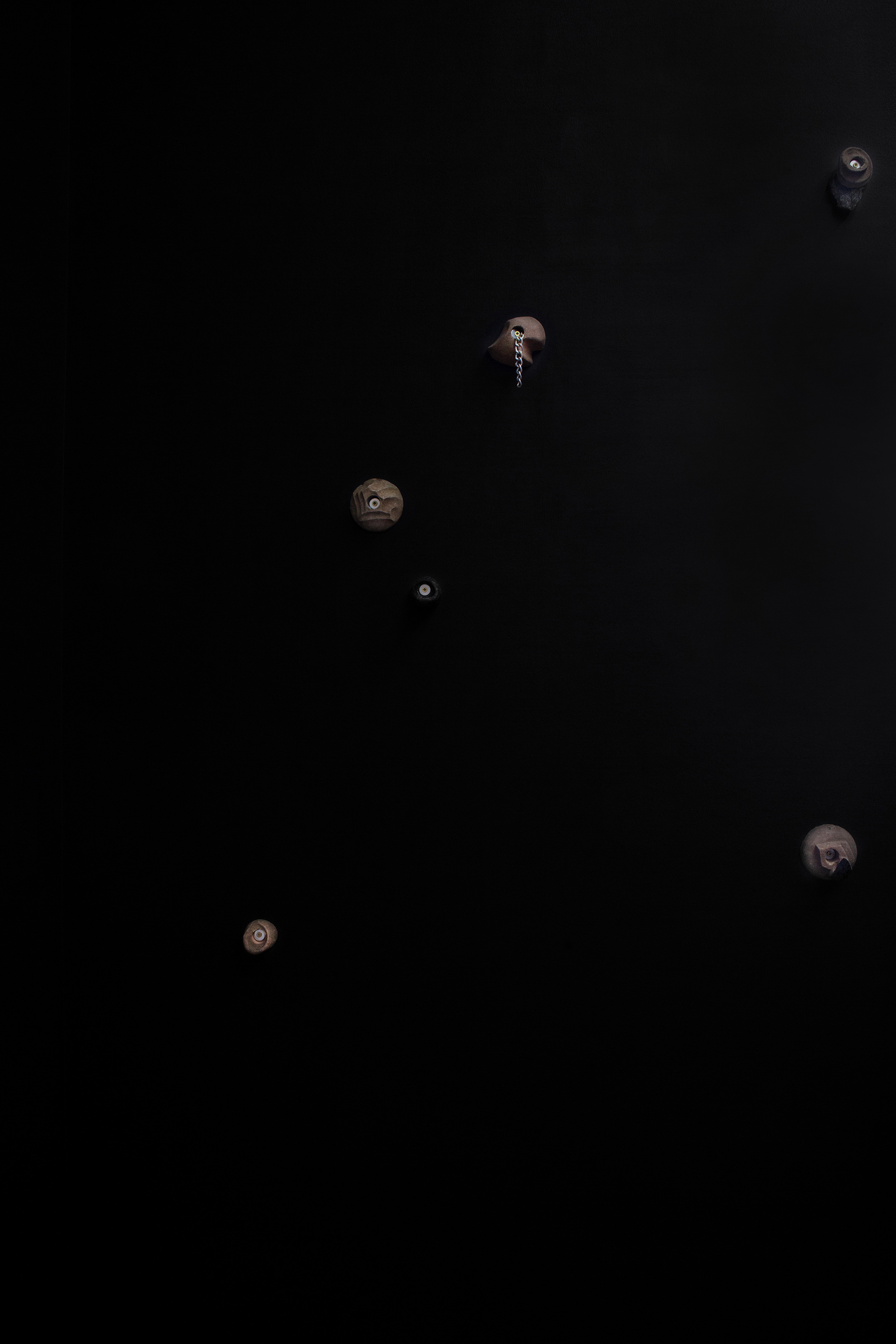 Sophia Grancharova
If you look closely, Things Might Fall Apart, 2021
epoxy, textile, silicone, glitter, steel, sequins Variable sizes 10 works
Sophia Grancharova
If you look closely, Things Might Fall Apart, 2021
epoxy, textile, silicone, glitter, steel, sequins Variable sizes 10 works
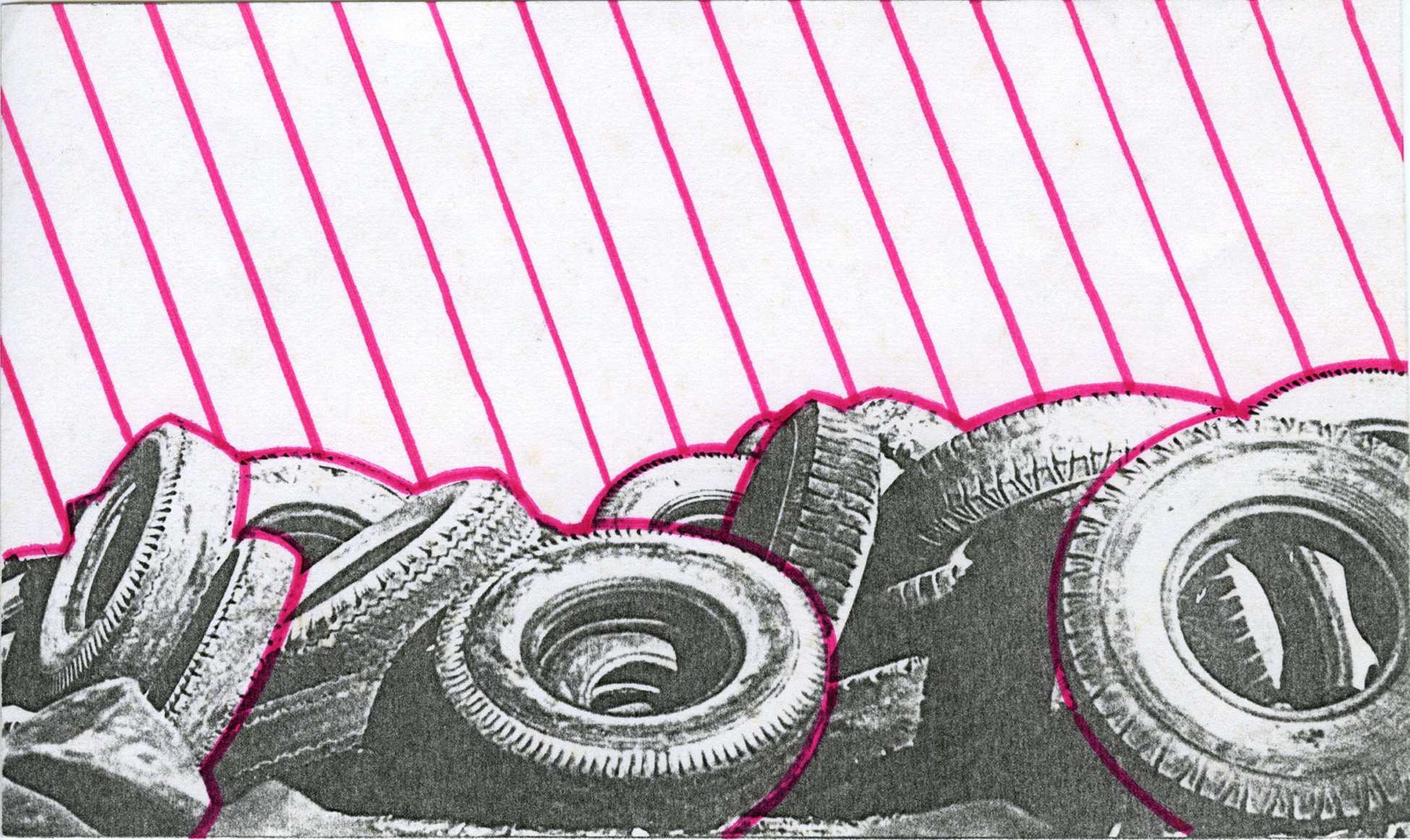 Vladimir Ivanov
Landscape with tires, 1975
photocopy, felt-tip pen
Vladimir Ivanov
Landscape with tires, 1975
photocopy, felt-tip pen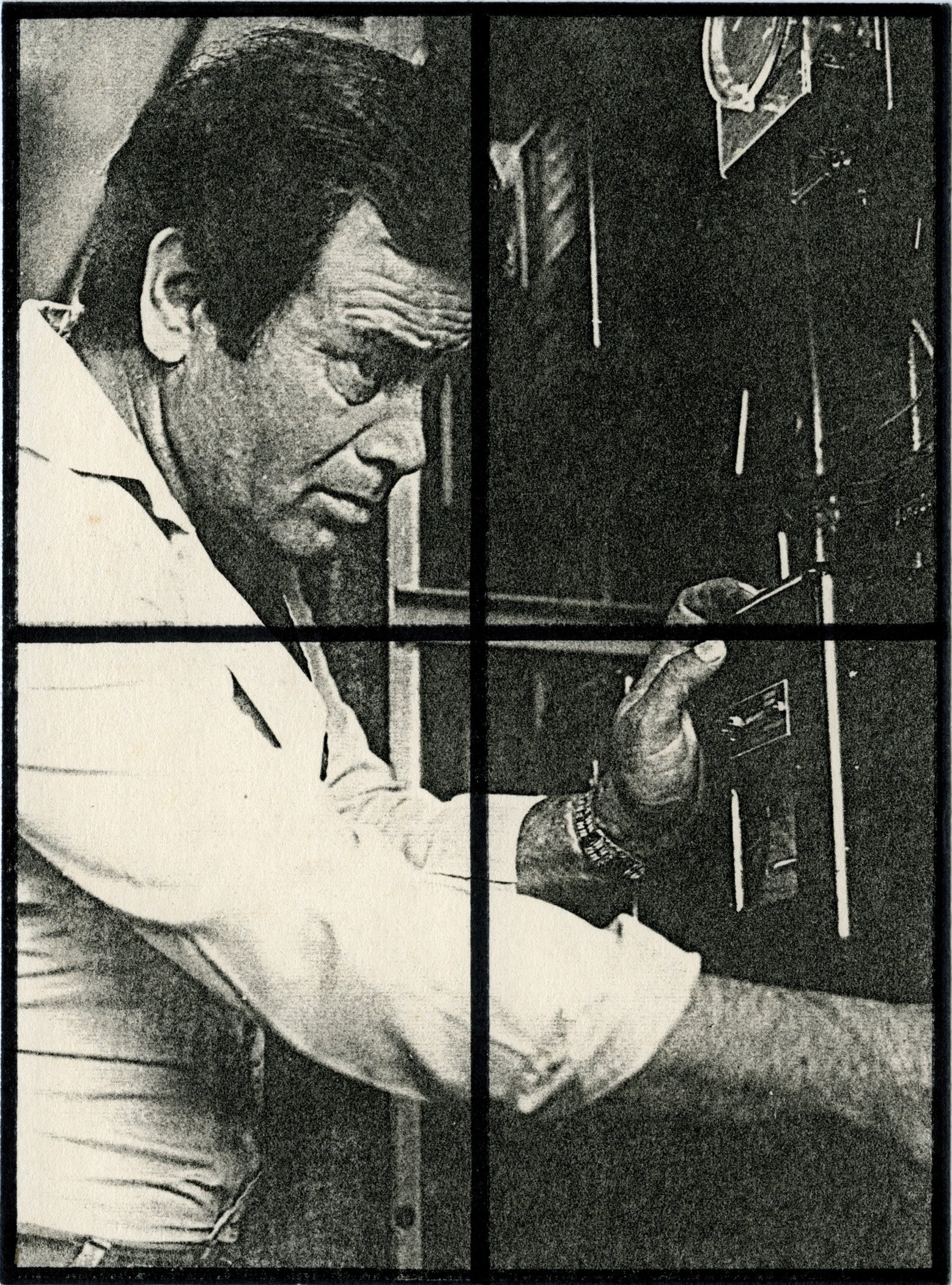 Vladimir Ivanov
Lines of force (series of 6), 1975
Photocopy, felt-tip pen
Vladimir Ivanov
Lines of force (series of 6), 1975
Photocopy, felt-tip pen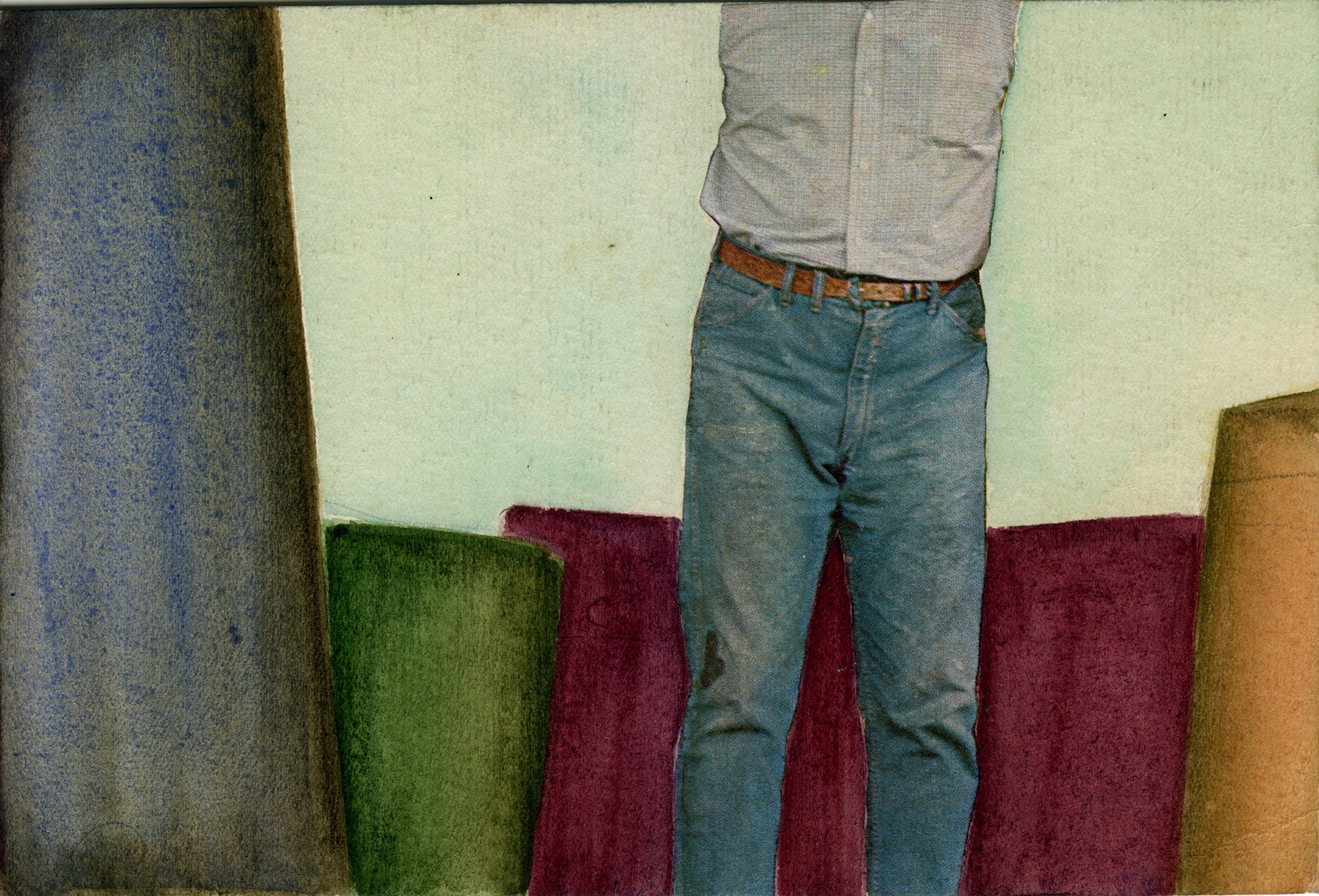 Vladimir Ivanov
Male figure, 1983
Collage, water paint
Vladimir Ivanov
Male figure, 1983
Collage, water paint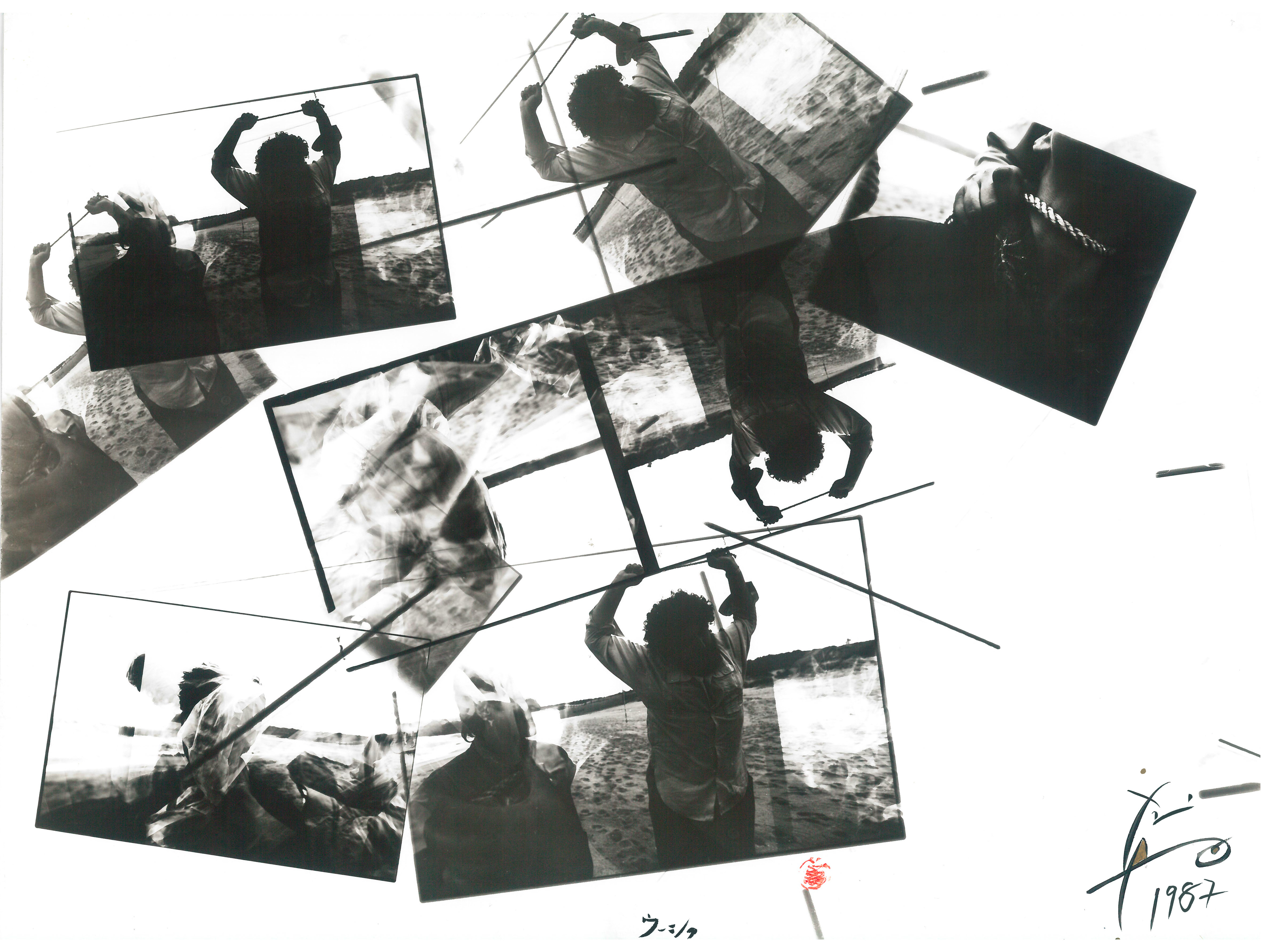 Stanka Tsonkova - Usha
Riot, 1987
Negative overlay, manual copy 30 x 40 сm Unique work
Stanka Tsonkova - Usha
Riot, 1987
Negative overlay, manual copy 30 x 40 сm Unique work
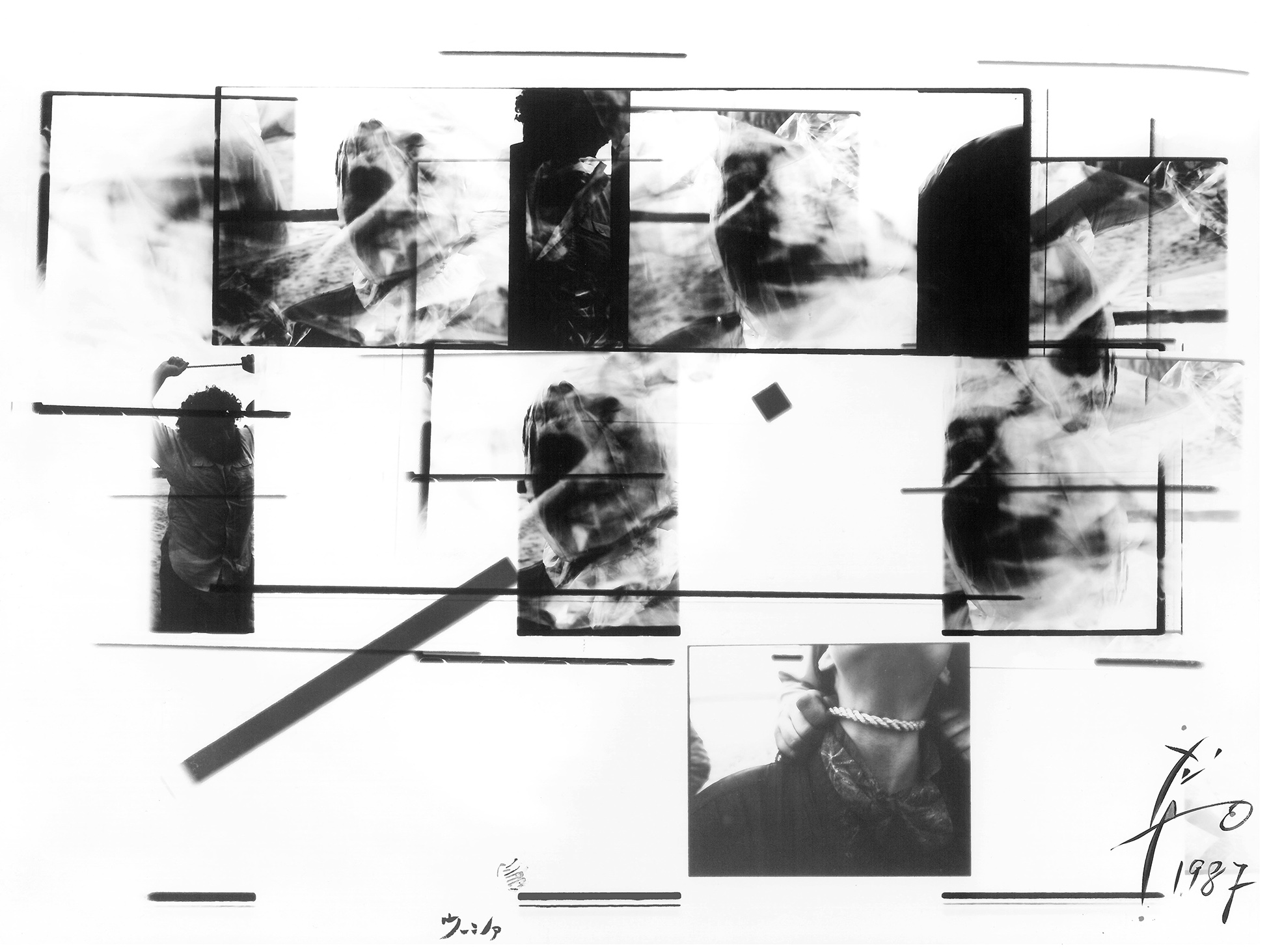 Stanka Tsonkova - Usha
Riot, 1987
Negative overlay, manual copy 30 x 40 сm Unique work
Stanka Tsonkova - Usha
Riot, 1987
Negative overlay, manual copy 30 x 40 сm Unique work
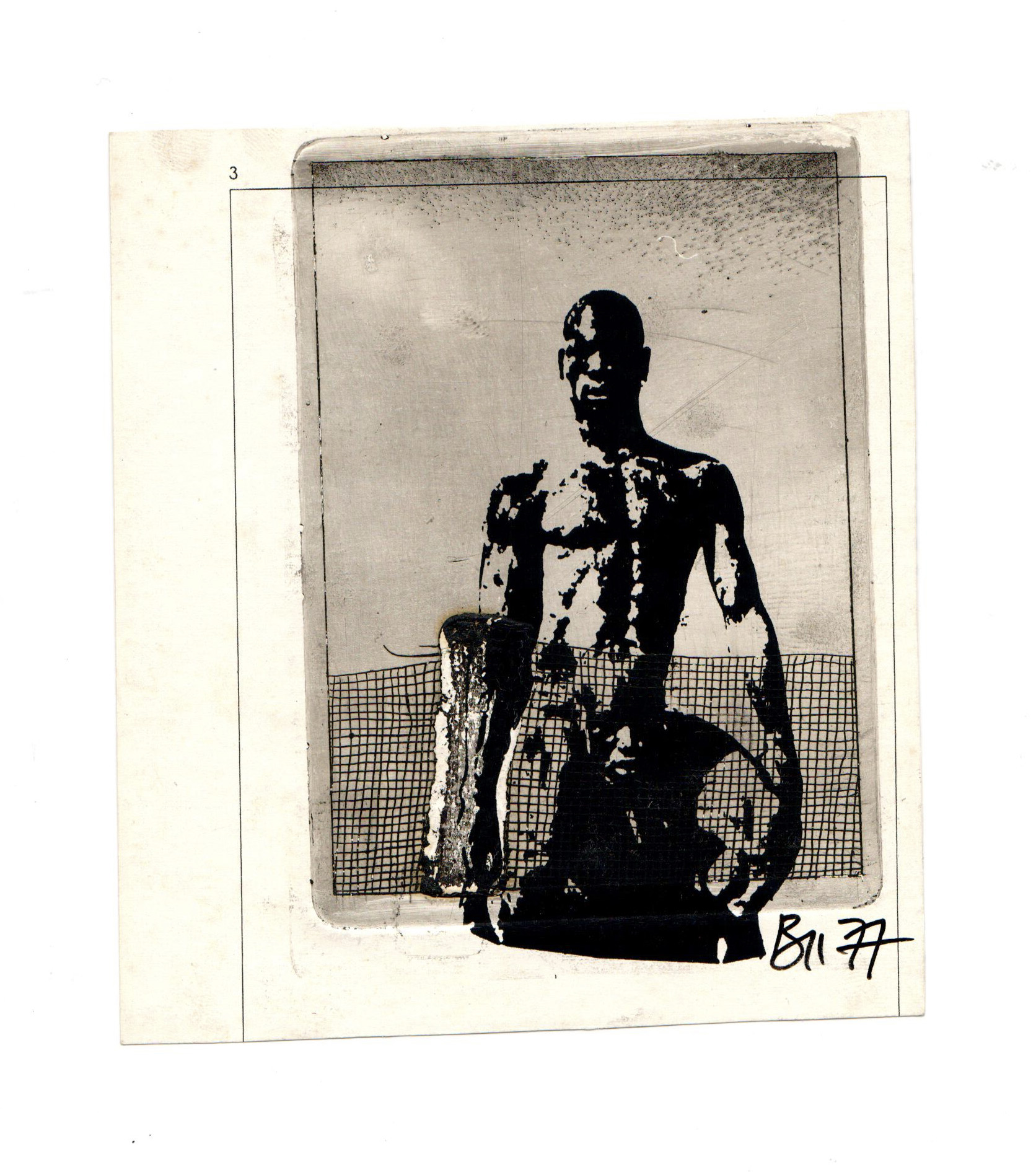 Vladimir Ivanov
Untitled, 1977
Etching on reproduction
Vladimir Ivanov
Untitled, 1977
Etching on reproduction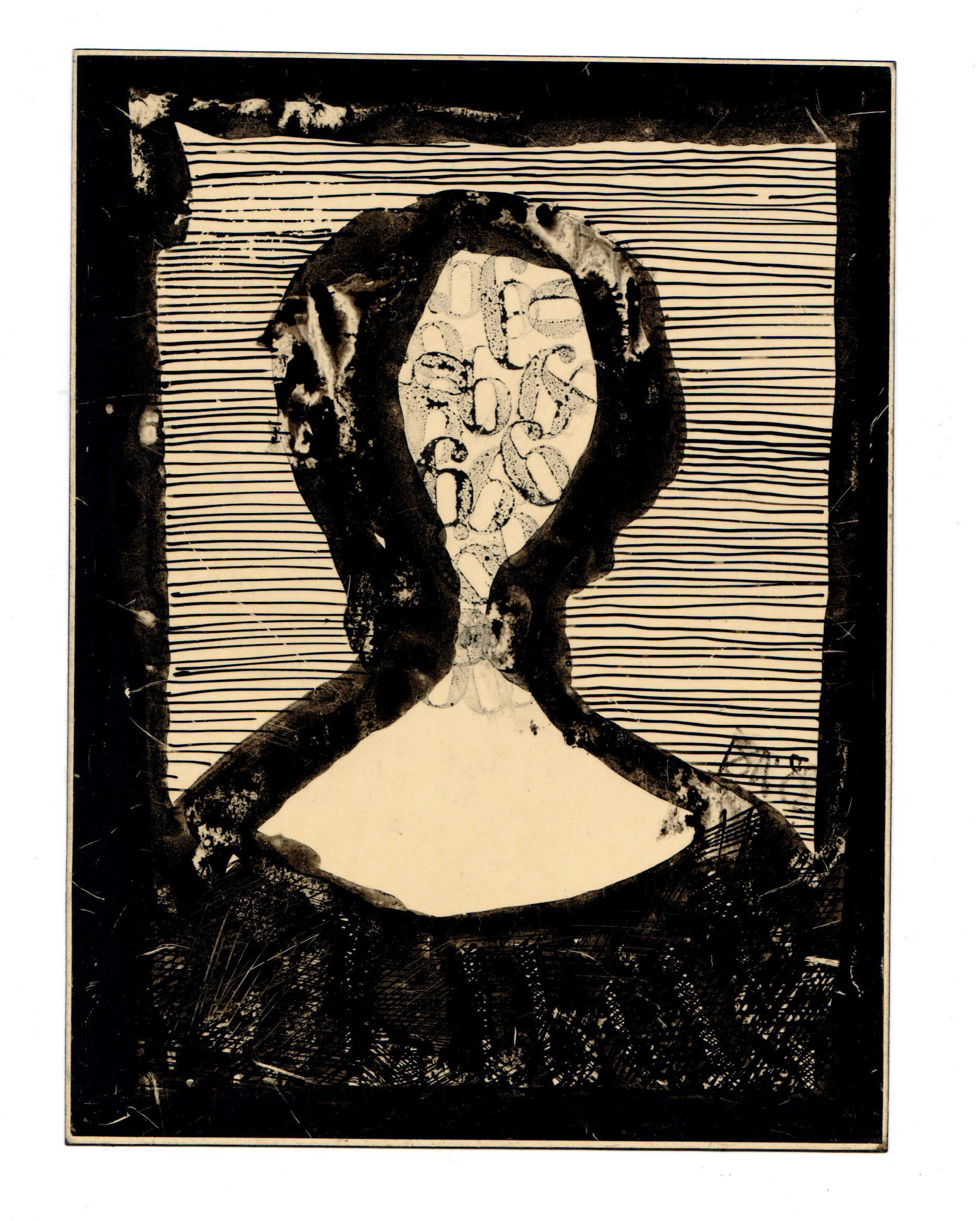 Vladimir Ivanov
Untitled, 1988
Drawing, ink
Vladimir Ivanov
Untitled, 1988
Drawing, ink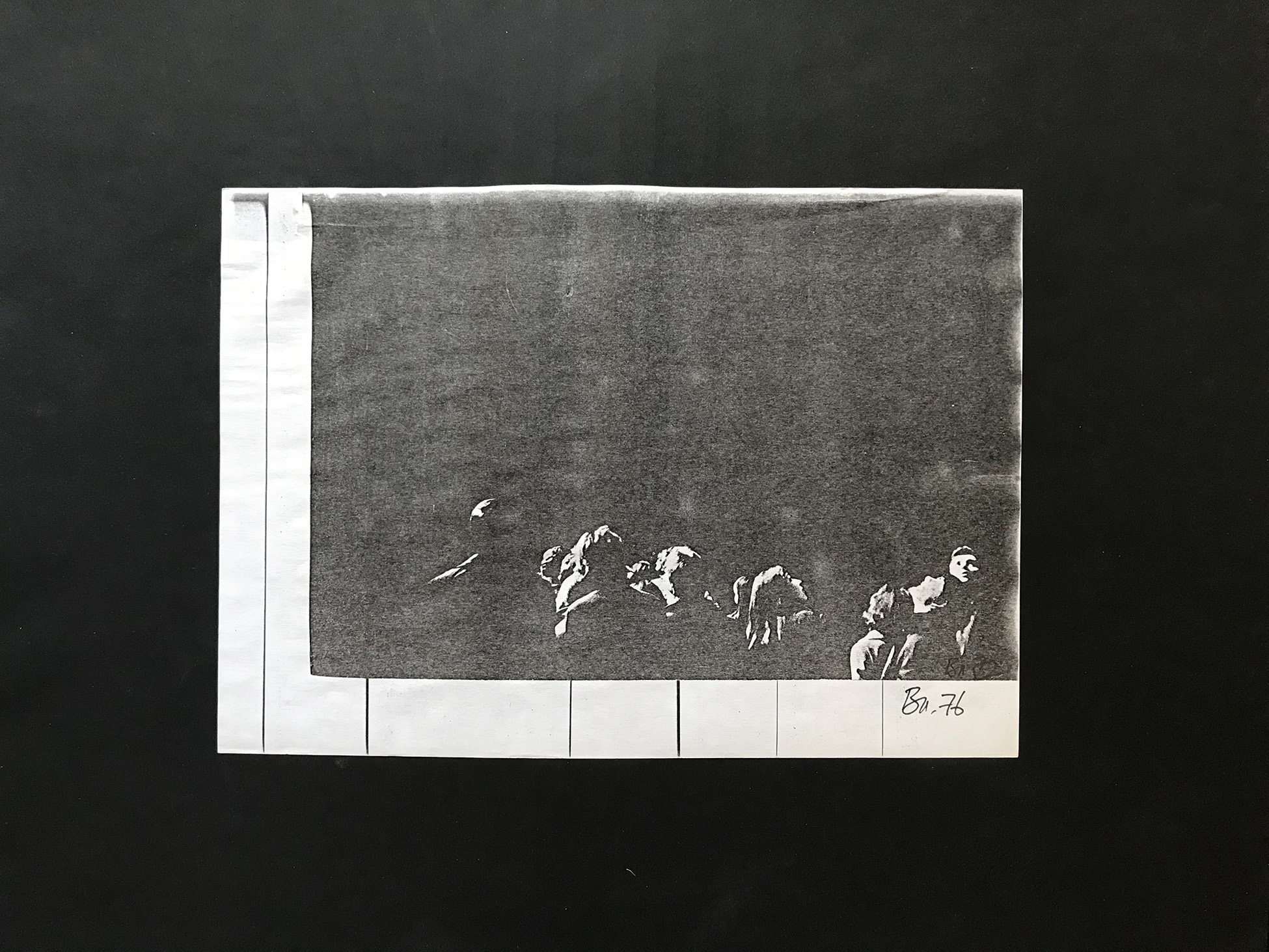 Vladimir Ivanov
WHY?,1976
Photocopy of a photo reproduction
Vladimir Ivanov
WHY?,1976
Photocopy of a photo reproduction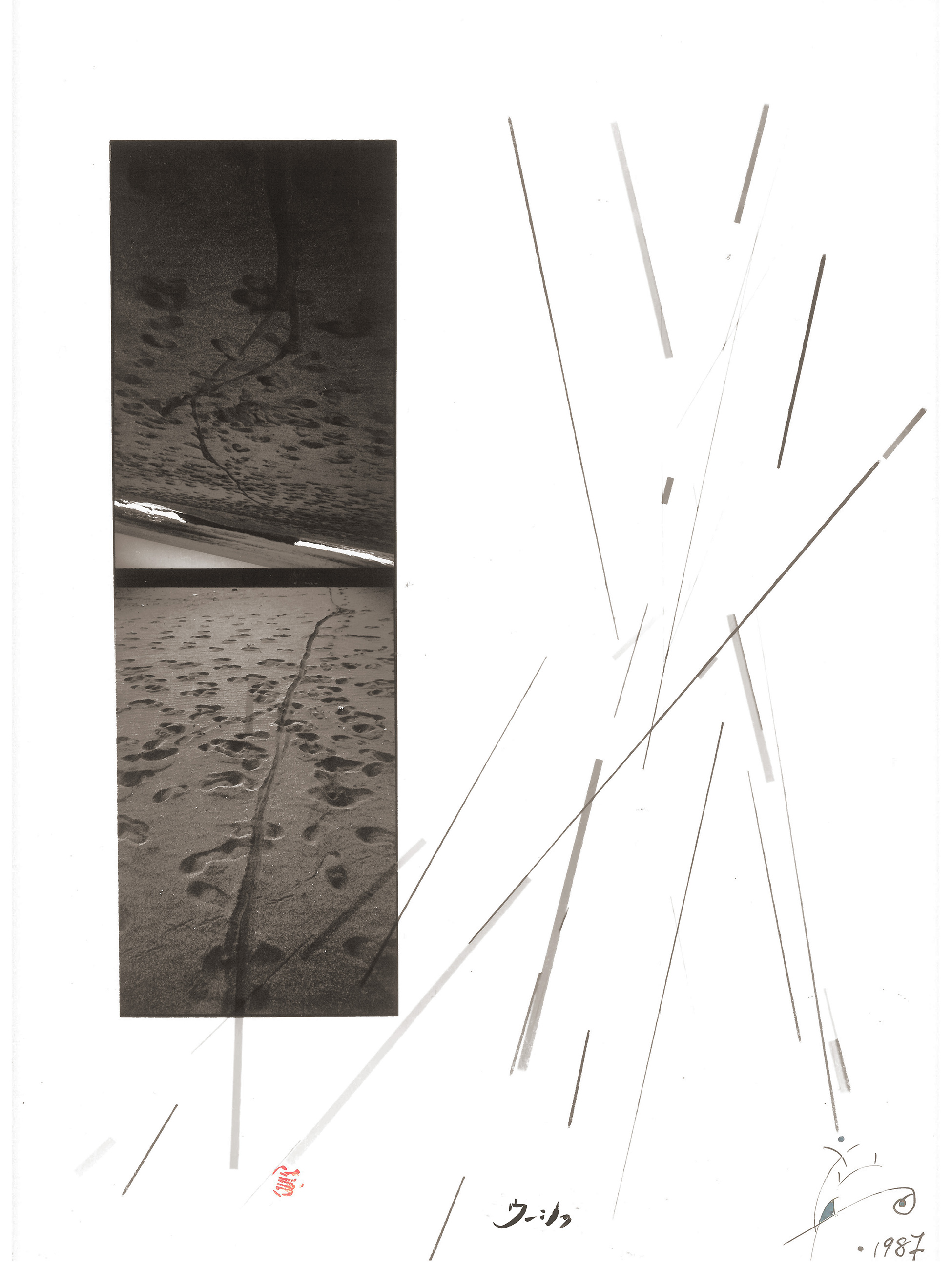 Stanka Tsonkova - Usha
Winter sea, 1987
Negative overlay, manual copy 30 x 40 сm Unique work
Stanka Tsonkova - Usha
Winter sea, 1987
Negative overlay, manual copy 30 x 40 сm Unique work
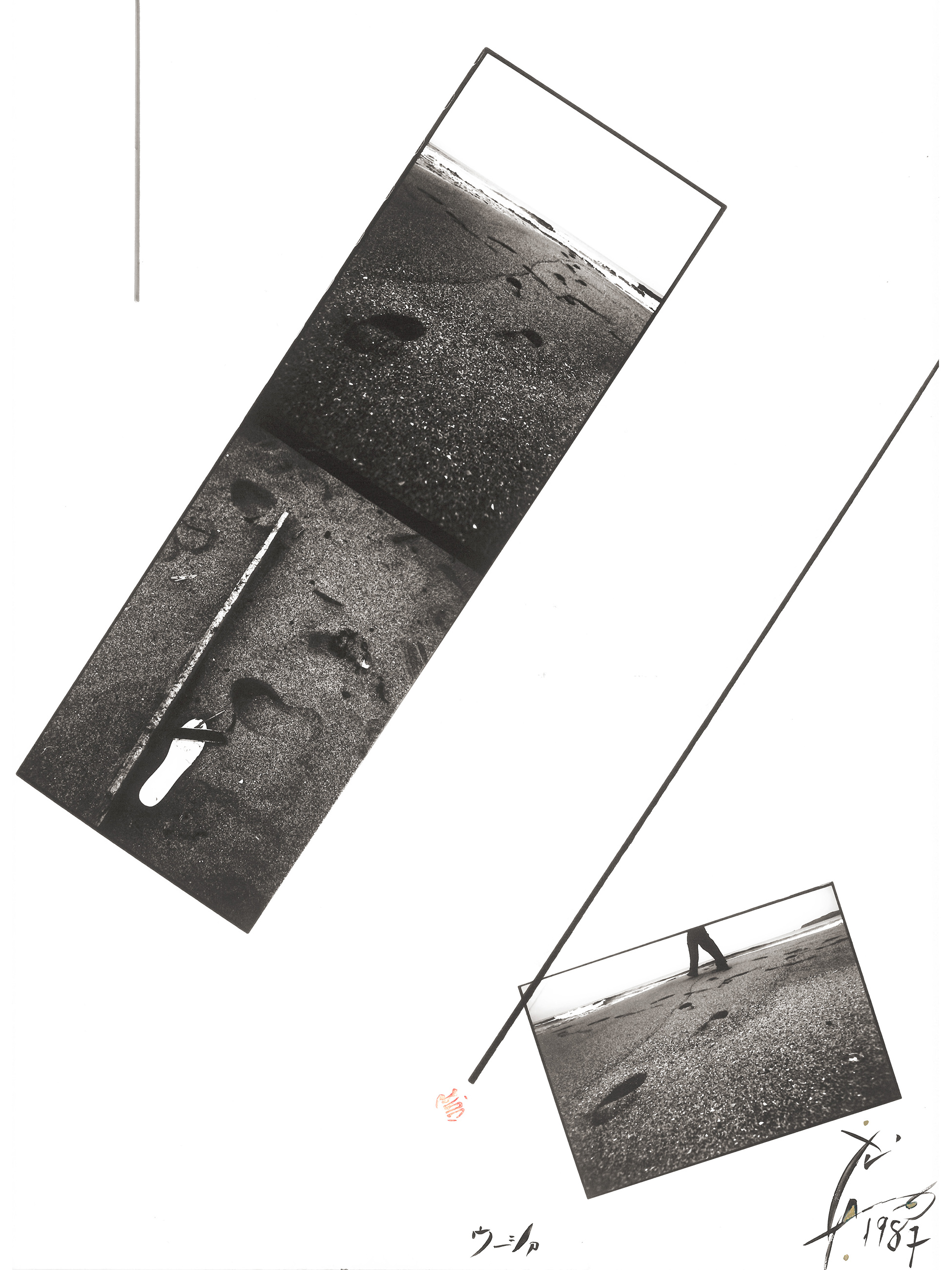 Stanka Tsonkova - Usha
Winter sea, 1987
Negative overlay, manual copy 30 x 40 сm Unique work
Stanka Tsonkova - Usha
Winter sea, 1987
Negative overlay, manual copy 30 x 40 сm Unique work
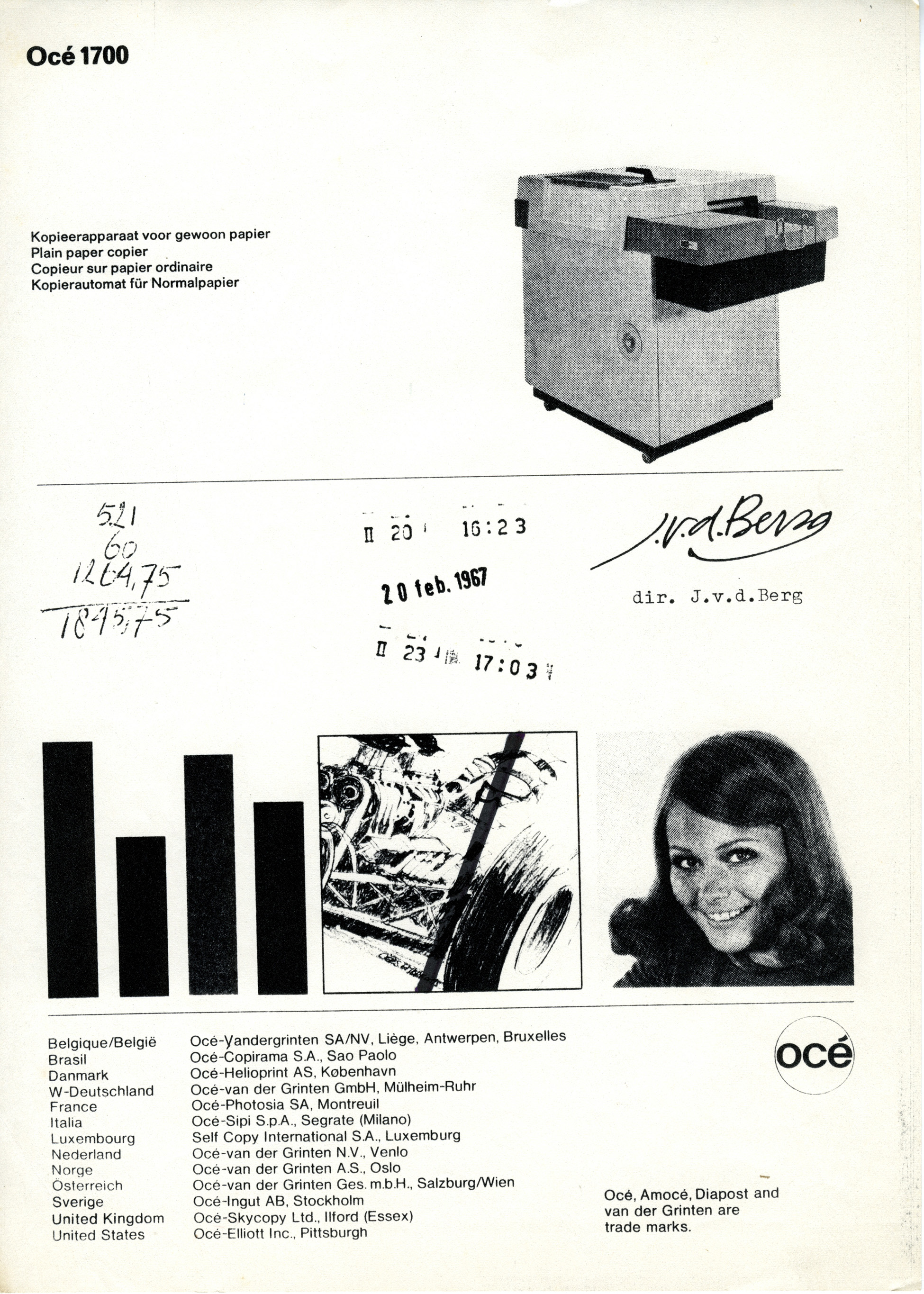 Vladimir Ivanov
Оce 1700 – Formula 1 (series of 5), 1974
Photocopy, felt-tip pen
Vladimir Ivanov
Оce 1700 – Formula 1 (series of 5), 1974
Photocopy, felt-tip pen